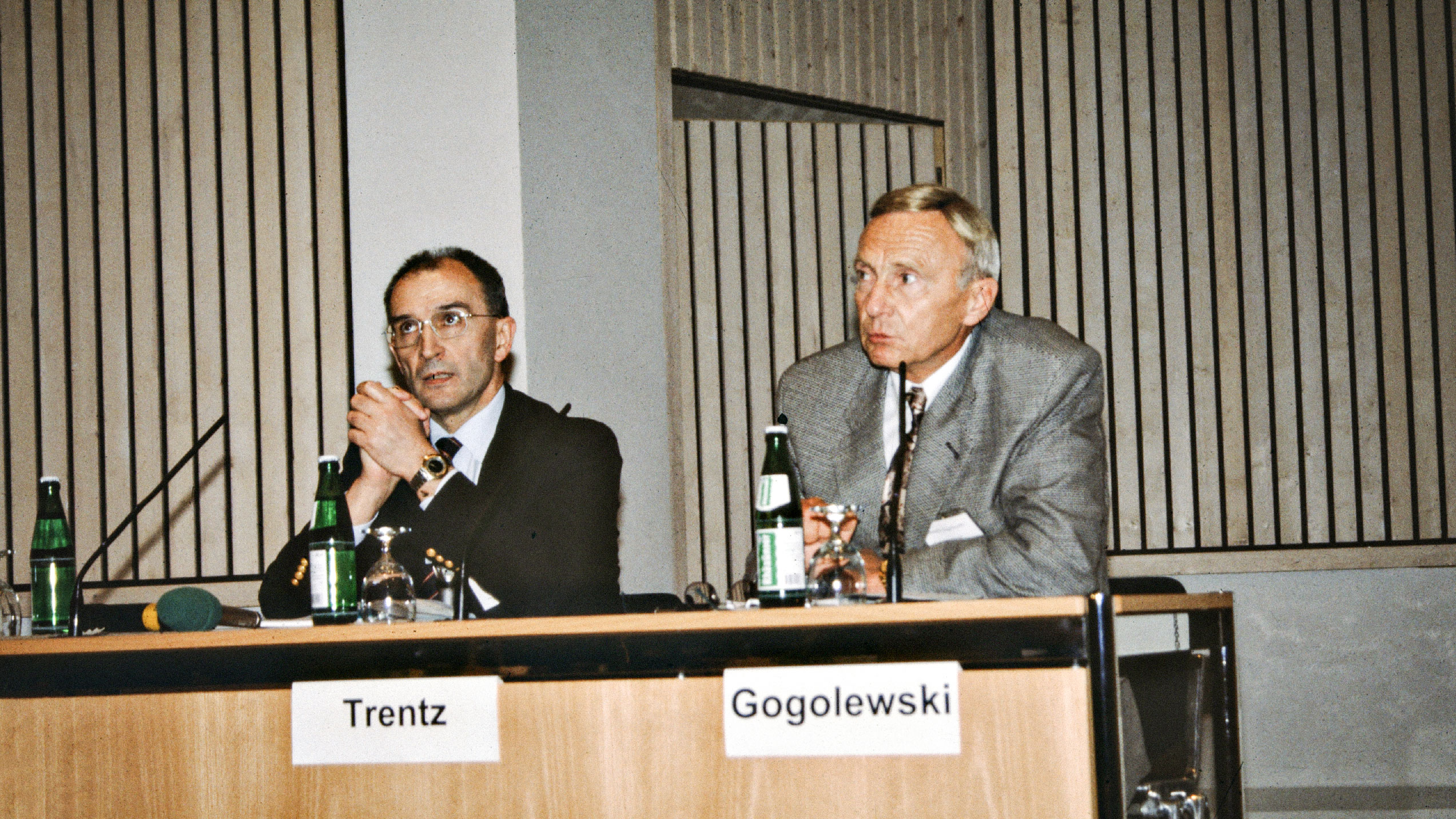Remembering Prof Sylwester Gogolewski

Prof Gogolewski worked on bioresorbable polymers at AO Research Institute Davos (ARI) for nearly two decades. He passed away on October 10, 2024, in Poland.
Gogolewski was born in Warsaw, Poland, in 1936. He received his master’s degree from the University of Lodz, where he specialized in chemistry. His doctoral dissertation dealt with nylon and his habilitation with the crystallization of polyamides. He later became associate professor and head of the Polymer Department at the Technical University of Zielona Góra, Poland. In 1980, he became a visiting professor at the Department of Polymer Chemistry at the University of Groningen, the Netherlands, working on vascular prostheses and polyurethanes. In 1983, he joined a Swedish R&D company in the French-speaking part of Switzerland.
He joined the Laboratory for Experimental Surgery (LECD, now ARI) in 1988, tasked by Stephan Perren to research and develop resorbable materials for fracture treatment. He first studied polylactides as candidates to replace internal fixation devices and as bone substitute materials, membranes, and scaffolds for tissue engineering purposes. In his later years in Davos, his attention turned again to polyurethanes. He also studied elastomeric enriched biodegradable polyurethane sponges for critical bone defects and microporous polyurethane membranes for tissue engineering.
ARI Director Geoff Richards shared his memories of Gogolewski: “Sylwester was proud to introduce me to Poland 20 years ago, where he showed me around the beautiful city of Krakow and took me on a trip to Auschwitz, which left a permanent memory. We then went to the Polish Biomaterials Society in Rytro, where we both presented and networked. Several years later Sylwester helped me to affiliate the Polish Biomaterials Society with the European Society for Biomaterials. After his retirement from ARI in 2007, he moved back to Zielona Góra, where he was still active and worked at the university’s Department of Biomedical Engineering, giving courses on biomaterials for biomedical engineering students. He had a long life and kept up his interest in biomaterials until he could no longer work. I wish condolences to his family and friends.”

